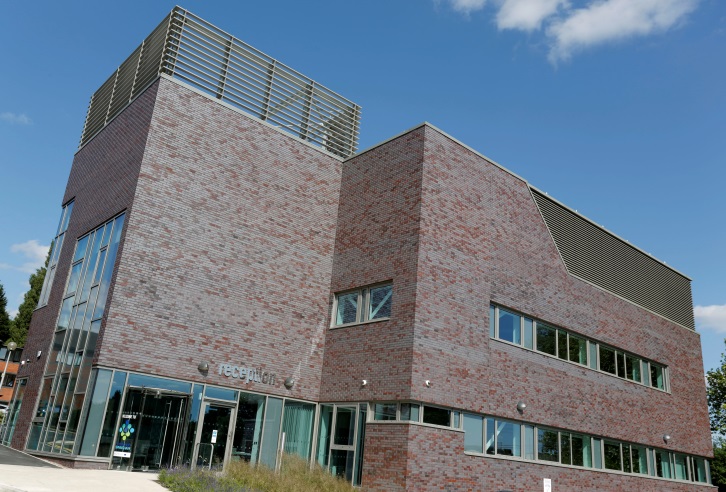
The BioHub Birmingham®, which provides flexible laboratory space for pre-revenue life science companies, has announced its expansion to meet the growing demand for laboratory space in the Midlands.
When the University-owned BioHub building first opened in 2015, its ground floor was designed and fully fitted out to be a shared-space life science incubator.
By early 2016, the ground floor had reached capacity, had a waiting list of interested tenants and was fielding enquiries from existing tenants about grow-on space.
The resident companies thrived as a result of being part of Birmingham’s integrated life sciences ecosystem, which includes 550 medical companies, over 180 medical organisations, 80 hospitals and specialist care centres, 44 GP clinics and routine care facilities, and 23 training facilities.
“Birmingham is increasingly visible as a destination for early stage medical and life science companies”, says Dr James Wilkie, CEO of the Birmingham Research Park, which hosts the BioHub Birmingham®. “In the last months alone, we had more than 10 enquiries from overseas companies who are looking seriously at Birmingham as the location for their UK operations.”
The life science sector will be in the first wave of sector deals highlighted in the Industrial Strategy White Paper, and is one of many sectors in which Birmingham is poised to reap benefits.
The University is investing £606 million investment in infrastructure to build assets that will further bring together the clinical, academic and commercial strengths of the region, and make Birmingham a destination of choice for life science companies.
The first floor of the BioHub will be fitted out to offer life science companies their own self-contained laboratory spaces, with adjacent office and breakout space. Companies on the site will also benefit from access to the world-class research of the University of Birmingham and other business support services.
This type of life science incubator space is widely available and selling strongly elsewhere in the UK yet there is no similar offering within Birmingham, and several potential tenants have already expressed interest.
The development will start in early 2018, and complete within the year.
ENDS
For further information contact
Ruth Ashton, Reputation and Communications Development Manager, [email protected], or tel 0121 414 9090 (out of hours 07989 558041).
About the BioHub Birmingham®
The BioHub hosts a thriving community of researchers and early stage life science companies including Linear Diagnostics, Nonacus, Gifford Bioscience and Future Genetics.
For more information about the BioHub Birmingham®, see www.thebiohub.co.uk.
About the life sciences ecosystem in Birmingham
The Edgbaston Medical Quarter hosts 64% of the city’s healthcare economy and is home to 550 medical companies, over 180 medical organisations, 80 hospitals and specialist care centres, 44 GP clinics and routine care facilities, and 23 training facilities. In addition to the expertise, the medical assets that are embedded in and around the University are particularly attractive to overseas companies. Birmingham Health Partners facilitate industry collaborations with the NHS and are dedicated to speeding up development from bench to bedside.
About the University of Birmingham
The University of Birmingham is ranked amongst the world’s top 100 institutions. Its work brings people from across the world to Birmingham, including researchers, teachers and more than 5,000 international students from over 150 countries.

